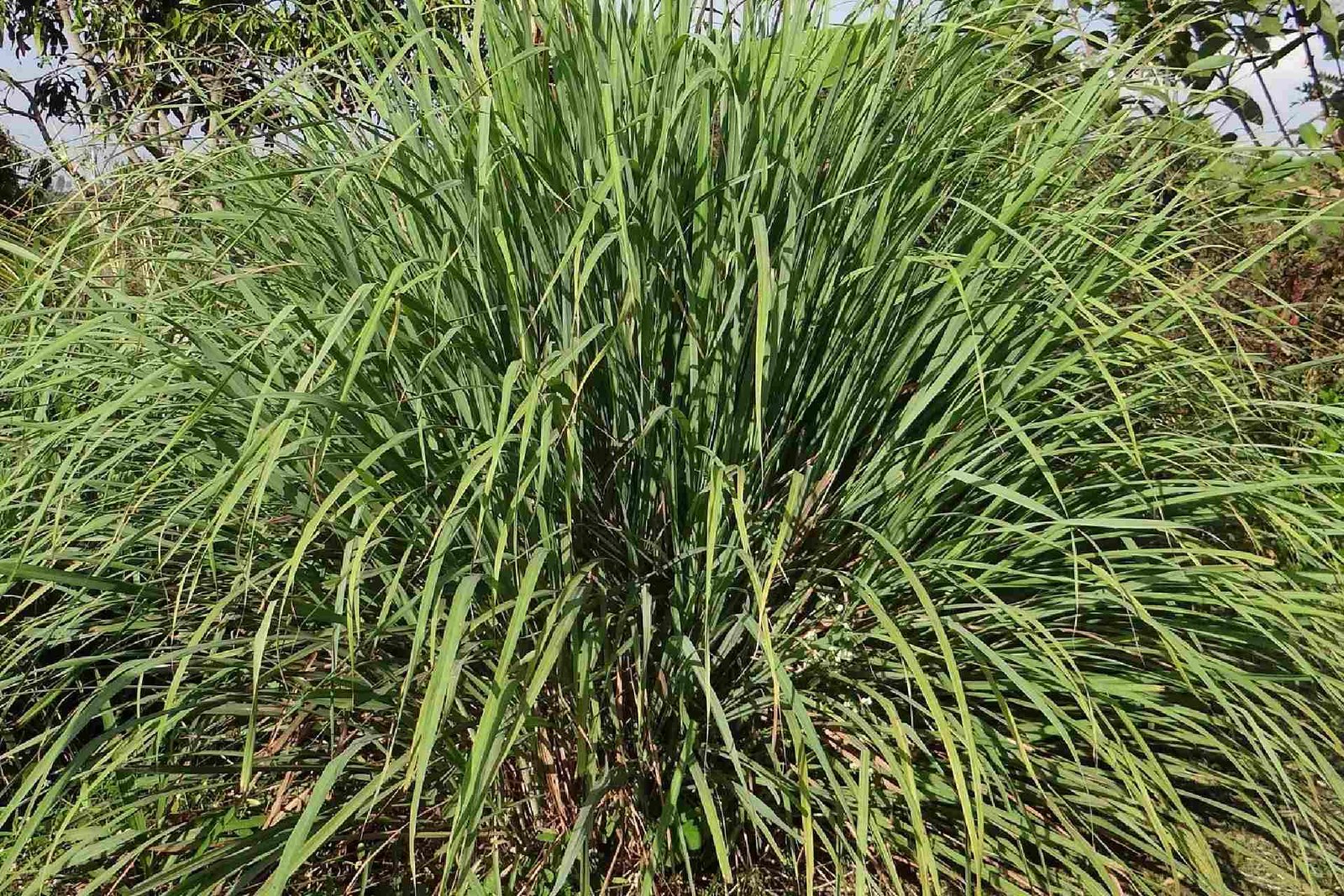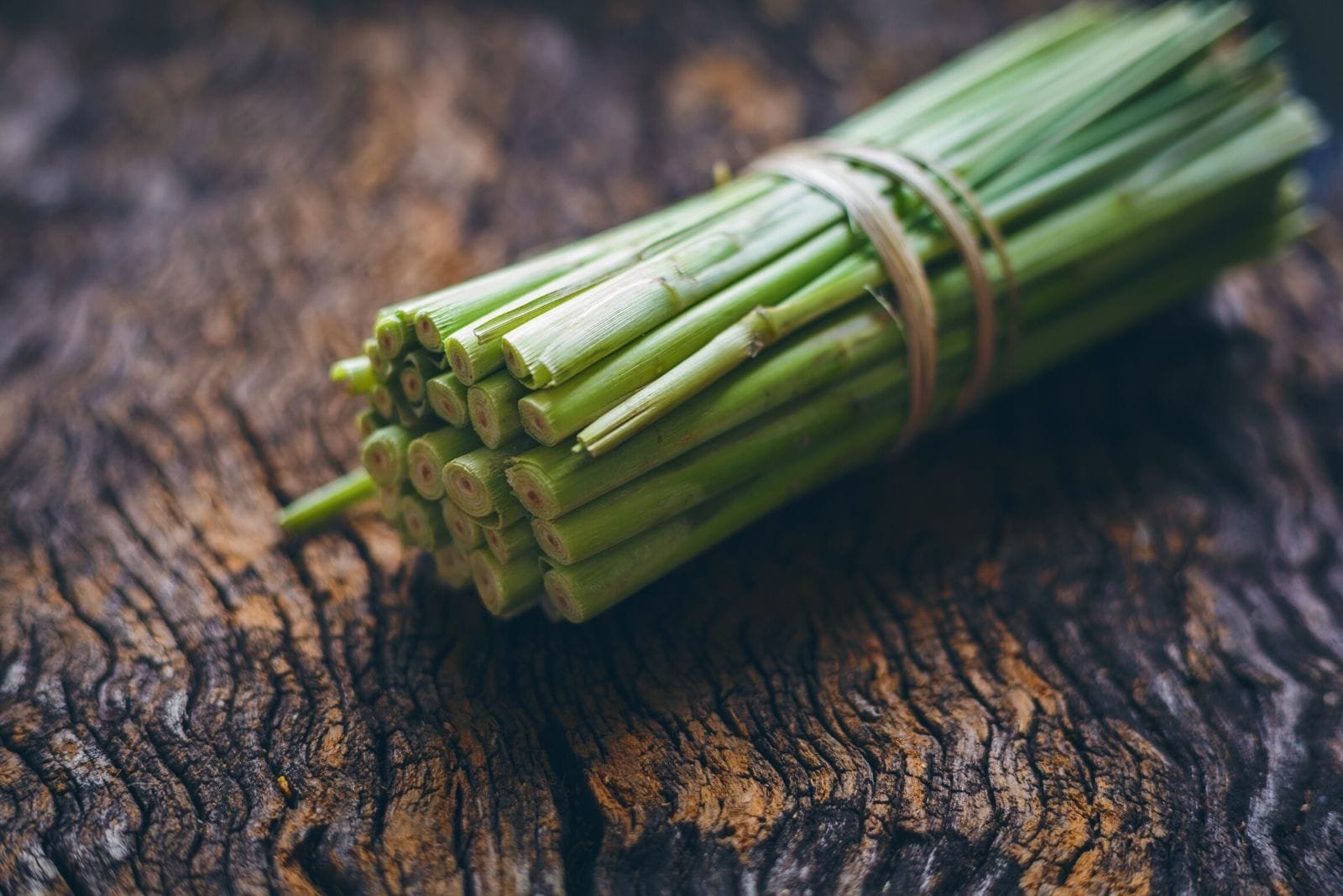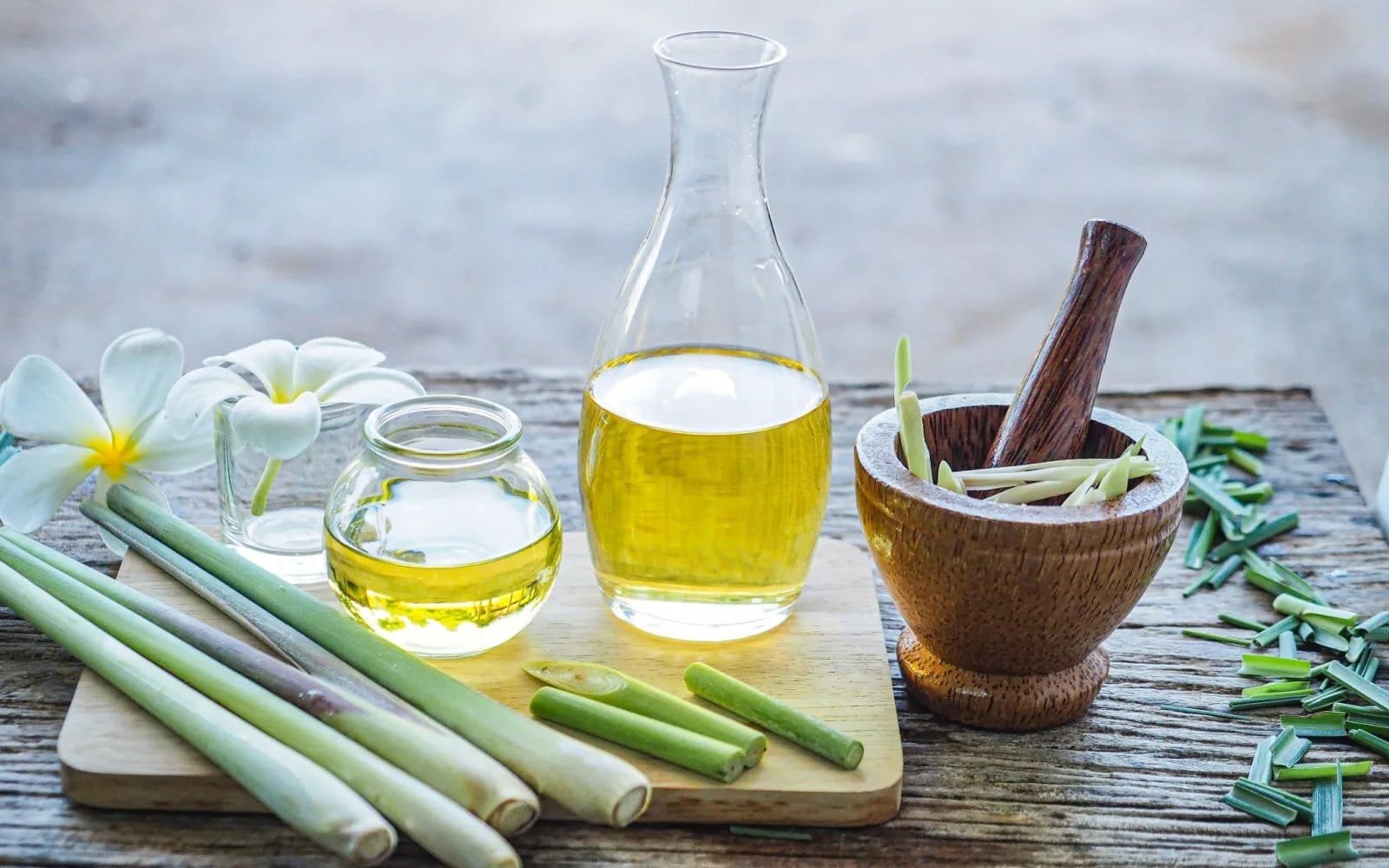
Summary of Contents
Introduction to the Herbal Elixir
Lemon grass plant (Cymbopogon citratus), also known as citronella grass, is an aromatic herb known for its lemony fragrance and numerous health benefits. Widely used in traditional medicine and the culinary world, lemon grass brings its refreshing scent and subtle citrus flavor to teas, soups, and herbal concoctions. Beyond the kitchen, this tall, grassy herb is also prized for its medicinal and therapeutic properties, with benefits ranging from aiding digestion to reducing stress.
Natural Habitat and Varieties
The lemon grass plant is native to tropical and subtropical regions of Southeast Asia, including India, Sri Lanka, and Thailand. It belongs to the Poaceae family, which includes other grassy plants such as rice, corn, and wheat. It is a versatile herb with its distinct citrus aroma, has found a place in the diverse culinary landscape of Northeast India. While not native to the region, it has been widely cultivated due to its adaptability to the tropical climate and its numerous uses.
Natural Habitat
- Tropical and Subtropical Regions: Lemon grass plant is a native of tropical and subtropical regions, particularly South Asia and Southeast Asia. It thrives in warm, humid climates with abundant rainfall.
- Wide Cultivation: Due to its adaptability and popularity, lemon grass has been introduced to many other tropical and subtropical areas worldwide, including parts of Africa, the Americas, and the Caribbean.
Family and Genus
- Grass Family (Poaceae): Lemon grass plant belongs to the grass family (Poaceae), which also includes other common grasses like wheat, rice, and corn.
- Genus Cymbopogon: Within the grass family, lemon grass is classified under the genus Cymbopogon. This genus includes several species of lemongrass, each with its own unique characteristics.
Varieties of Lemon Grass
While there are several species within the Cymbopogon genus, the two most commonly used types of lemongrass are:
- East Indian Lemongrass (Cymbopogon flexuosus): This variety is native to South Asia, including India, Sri Lanka, and Thailand. It is known for its strong lemon-like aroma and is often used in cooking.
- West Indian Lemongrass (Cymbopogon citratus): This variety is native to Southeast Asia and is more commonly used in culinary applications. It has a slightly milder flavor compared to East Indian lemongrass.
Both varieties are cultivated extensively throughout the world for their culinary and aromatic properties.

History and Tradition of Lemon Grass Plant in Northeast India
Lemon grass plant has a rich history rooted in traditional medicine across Asia and Africa, where it has been used for centuries for its medicinal properties. In Ayurvedic medicine, lemon grass is valued for its ability to detoxify the body, relieve pain, and promote digestive health. It’s also a popular ingredient in folk medicine, where it’s used to treat fever, insomnia, and inflammation.
Introduction and Cultivation
- Colonial Era: Lemon grass plant is believed to have been introduced to Northeast India during the British colonial period. It was likely brought by British officials or traders who were familiar with the herb’s culinary and medicinal uses.
- Adaptability: The herb’s adaptability to the region’s tropical climate and fertile soils allowed it to thrive, quickly becoming a popular crop among local farmers.
Cultural Significance
- Religious Practices: In some parts of Northeast India, lemon grass plant is used in religious ceremonies and rituals, symbolizing purity and freshness.
- Culinary Integration: Lemon grass plant has seamlessly integrated into the diverse culinary traditions of Northeast India. It is used as a key ingredient in various dishes, adding a zesty flavor and aroma.
- Traditional Medicine: Lemon grass plant has been used in traditional medicine for centuries to treat a variety of ailments, including digestive disorders, fever, and skin conditions.
Lemon grass, with its versatility and economic potential, has become an integral part of the cultural landscape of Northeast India. Its introduction and cultivation have enriched the region’s culinary traditions, contributed to traditional medicine, and provided economic opportunities for local communities.
Health Benefits of Lemon Grass Plant
Lemon grass plant, renowned for its zesty flavor and refreshing aroma, is also a valuable source of health benefits. Packed with antioxidants, digestive enzymes, and antimicrobial properties, lemon grass has been used for centuries as a traditional remedy and culinary ingredient.

Antioxidant Powerhouse
- Fighting Free Radicals: Lemon grass is rich in antioxidants, including flavonoids and phenolic compounds, which help neutralize harmful free radicals in the body.
- Protecting Cells: These antioxidants protect cells from damage, reducing the risk of chronic diseases such as heart disease, cancer, and premature aging.
- Boosting Immunity: Antioxidants also play a crucial role in supporting the immune system, helping the body fight off infections and diseases.
Digestive Aid
- Soothing Inflammation: Lemon grass plant has anti-inflammatory properties that can help soothe the digestive tract, reducing inflammation and discomfort.
- Improving Digestion: The enzymes in lemon grass can aid in digestion, promoting better absorption of nutrients and reducing symptoms like bloating, gas, and indigestion.
- Relieving Cramps: Lemon grass has been traditionally used to relieve menstrual cramps and other digestive discomforts.
Supporting Immune Health
- Antibacterial and Antifungal Properties: Lemon grass plant contains compounds with antibacterial and antifungal properties, which can help combat infections and boost the immune system.
- Cold and Flu Relief: Traditional healers often use lemon grass as a remedy for colds and flu, due to its ability to reduce inflammation and promote healing.
Stress Relief and Relaxation
- Aromatherapy: Lemon grass essential oil is widely used in aromatherapy for its calming and uplifting effects.
- Reducing Anxiety: The aroma of lemon grass can help reduce anxiety, promote relaxation, and improve sleep quality.
- Stress Management: Inhaling the scent of lemon grass can be a natural way to manage stress and promote overall well-being.
Aids in Detoxification
- Diuretic Properties: Lemon grass plant has diuretic properties, which can help increase urine production and promote the elimination of toxins from the body.
- Kidney Health: Regular consumption of lemon grass can support kidney health and function.
In addition to these benefits, lemon grass plant is also a good source of vitamins, minerals, and fiber. Incorporating lemon grass into your diet or using its essential oil can be a natural and effective way to improve your overall health and well-being.
Ideal Growing Conditions for Lemon Grass Plant
Lemon grass plant is a versatile herb that thrives in warm, tropical climates. It is a relatively low-maintenance plant that can be easily grown in gardens, containers, or commercial plantations. Here are the ideal growing conditions for lemon grass:
- Warm Temperatures: Lemon grass plant prefers temperatures between 20°C and 30°C (68°F and 86°F). It can tolerate some heat but may become stressed in extremely hot conditions.
- Consistent Moisture: Lemon grass plant requires regular rainfall or irrigation to maintain adequate soil moisture. However, it is important to avoid overwatering, as this can lead to root rot.
- Humid Conditions: While lemon grass plant can tolerate some dryness, it grows best in humid climates. High humidity helps promote plant growth and essential oil production.
- Well-Drained Soil: Lemon grass plant requires well-drained soil to prevent root rot. Heavy clay soils may retain too much moisture, leading to problems.
- Fertile Soil: A soil rich in organic matter is ideal for lemon grass cultivation. Adding compost or well-rotted manure can improve soil fertility and provide essential nutrients.
- Slightly Acidic Soil: Lemon grass plant prefers slightly acidic soil with a pH range of 5.5 to 7.5.
- Full Sun: Lemon grass thrives in full sun, receiving at least 6-8 hours of direct sunlight per day. Adequate sunlight is essential for optimal growth and essential oil production.
- Regular Watering: Lemon grass needs regular watering, especially during dry periods. However, it is important to avoid overwatering, as this can lead to root rot.
- Proper Drainage: Ensure that the soil has good drainage to prevent waterlogging.
By providing these ideal growing conditions, you can cultivate healthy and productive lemon grass plants that will yield abundant harvests of this fragrant and versatile herb.
Best Organic Farming Techniques for Lemon Grass Plant
To promote sustainable and eco-friendly cultivation of lemon grass, many farmers are adopting organic farming practices. These methods help to enhance soil health, reduce reliance on synthetic chemicals, and produce high-quality lemon grass.

Organic Fertilizers and Mulching
- Nutrient Enrichment: Using organic fertilizers like compost, vermicompost, or cow manure can add essential nutrients to the soil, promoting healthy plant growth.
- Soil Health: Organic fertilizers can improve soil structure, increase water retention, and enhance microbial activity.
- Mulching: Applying organic mulch, such as leaves, straw, or grass clippings, can help retain soil moisture, suppress weeds, and protect the soil from erosion.
Companion Planting and Natural Pest Control
- Beneficial Interactions: Planting lemon grass with companion plants like basil, marigold, or mint can create a mutually beneficial environment. These companion plants may deter pests, attract beneficial insects, or improve soil fertility.
- Neem Oil Spray: Neem oil is a natural insecticide that can be used to control pests on lemon grass plants. It is effective against a wide range of pests without harming beneficial insects.
Crop Rotation
- Breaking Pest Cycles: Rotating lemon grass with other crops can help disrupt the life cycles of pests, reducing their populations and preventing infestations.
- Soil Health: Crop rotation can also improve soil health by introducing different plant species with varying nutrient requirements.
Integrated Pest Management (IPM)
- Holistic Approach: IPM is a comprehensive approach to pest management that combines various strategies to minimize the use of chemical pesticides.
- Monitoring and Prevention: IPM involves regular monitoring of crops for pests and implementing preventive measures, such as sanitation and cultural practices, to reduce pest pressure.
Water Conservation
- Efficient Irrigation: Implementing efficient irrigation systems, such as drip irrigation, can help conserve water and deliver it directly to the root zone.
- Rainwater Harvesting: Collecting rainwater can be used to supplement irrigation needs, reducing dependence on municipal water sources.
Economic Impact of Lemon Grass Plant
Lemon grass has emerged as a profitable crop in Northeast India, contributing to the region’s economy and providing livelihood opportunities for many farmers.
Profitability and Yield
- High Returns: Lemon grass cultivation can be a lucrative venture, with an average yield of 10-12 tons per acre. The essential oil extracted from lemon grass, which is rich in citral, commands a high price in the market, ranging from ₹700 to ₹1,000 per kilogram depending on quality and demand.
- Income Generation: Lemon grass farming can provide a significant source of income for smallholder farmers in Northeast India, especially in areas where other agricultural options may be limited.
Employment Opportunities
- Rural Livelihoods: The cultivation, harvesting, processing, and marketing of lemon grass create employment opportunities for a large number of people in rural areas.
- Job Creation: The industry supports various roles, including farmers, laborers, processors, exporters, and traders.
Export Market
- Global Demand: Lemon grass and its products, such as essential oil and extracts, have a growing demand in international markets, particularly in Europe, North America, and the Middle East.
- Economic Benefits: India is a major exporter of lemon grass oil, contributing to the country’s foreign exchange earnings and boosting the economy of Northeast India.
Government Support
- Promoting Organic Cultivation: Initiatives are being implemented to promote organic cultivation of lemon grass, which can fetch higher prices in the market and attract environmentally conscious consumers.
- Training and Subsidies: Indian agricultural agencies and government departments provide training programs and subsidies to encourage lemon grass farming among farmers.

Challenges in Growing Lemon Grass Plant
While lemon grass is a relatively hardy plant, farmers may encounter certain challenges during its cultivation.
Pests and Diseases
- Fungal Infections: Lemon grass can be susceptible to fungal infections, such as leaf blight and root rot, especially in humid conditions.
- Pest Pressure: While lemon grass is generally resistant to pests, it can still be affected by insects like aphids, mealybugs, and thrips.
- Organic Pest Control: Using organic fungicides and natural pest control methods can help manage these issues without harming beneficial insects.
Market Price Fluctuations
- Demand and Supply: The market price of lemon grass and its essential oil can fluctuate depending on factors such as global demand, supply, and economic conditions.
- Income Instability: Fluctuating prices can create uncertainty for farmers, impacting their income and profitability.
- Diversification: To mitigate the risk of price fluctuations, farmers can consider diversifying their crops or exploring value-added products.
Climate Sensitivity
- Cold Tolerance: Lemon grass is sensitive to cold temperatures and may struggle to survive in regions with harsh winters.
- Climate Change: Climate change can impact lemon grass cultivation by altering rainfall patterns, temperature extremes, and the incidence of pests and diseases.
- Adapting to Climate Change: Farmers need to be aware of climate change impacts and adopt strategies to adapt their cultivation practices accordingly, such as selecting heat-tolerant varieties or implementing water conservation measures.
Soil Quality and Nutrient Management
- Soil Fertility: Lemon grass requires well-drained, fertile soil with adequate nutrients. Poor soil quality can limit plant growth and productivity.
- Organic Practices: Using organic fertilizers and compost can help maintain soil health and provide essential nutrients for lemon grass.
- Soil Testing: Regular soil testing can help identify nutrient deficiencies and inform fertilizer applications.
Harvesting and Processing
- Quality Control: Proper harvesting techniques and processing methods are essential to ensure the quality of the harvested product.
- Labor-Intensive: Harvesting and processing lemon grass can be labor-intensive, particularly when done manually.
The Versatile Lemon Grass Plant: Everyday Uses
Lemon grass, with its distinctive citrus aroma and refreshing taste, is a versatile herb that has found its way into various aspects of daily life.

Culinary Applications
- Asian Cuisine: Lemon grass is a staple ingredient in many Asian cuisines, particularly Thai, Vietnamese, and Indonesian. It is used to add a zesty flavor to soups, curries, stir-fries, and marinades.
- Beverages: Lemon grass is often used to make refreshing beverages like lemon grass tea, iced lemon grass drinks, and cocktails. Its citrusy flavor complements a variety of fruits and sweeteners.
- Infused Water: Adding lemon grass to water creates a flavorful and refreshing drink that is packed with antioxidants and other health benefits.
Therapeutic Uses
- Skin Care: Lemon grass extract is sometimes used in skincare products due to its potential antibacterial and anti-inflammatory properties.
- Aromatherapy: Lemon grass essential oil is widely used in aromatherapy for its calming and uplifting properties. It can help reduce stress, anxiety, and fatigue.
- Natural Cleaning: Lemon grass has antimicrobial properties that make it an effective natural cleaning agent. It can be used to clean surfaces, deodorize the air, and repel insects.
- Insect Repellent: Lemon grass is a natural insect repellent. It can be used to deter mosquitoes, ants, and other pests.
Value-Added Products
- Lemon Grass Oil: Extracted from the leaves, lemon grass oil is highly valued for its antimicrobial and anti-inflammatory properties, used in cosmetics, soaps, and aromatherapy.
- Lemon Grass Powder: Lemon grass powder is a convenient form for cooking, making it easy to add flavor to dishes. It is also used in teas and herbal supplements.
- Lemon Grass Tea: Lemon grass is commonly used to make refreshing and flavorful teas. It can be enjoyed hot or iced, and may be combined with other herbs or spices for added complexity.
- Infused Water: Infusing lemon grass in water creates a healthy and refreshing beverage that is packed with antioxidants.
- Infused Honey: Lemon grass can be infused into honey to create a unique and flavorful sweetener with potential health benefits.
Conclusion
Lemon grass is a valuable crop with multiple applications in the culinary, therapeutic, and wellness sectors. Its robust growth, health benefits, and global demand make it an attractive choice for farmers. As a sustainable crop, lemon grass farming aligns with eco-friendly practices and offers economic opportunities to rural communities. Supporting lemon grass cultivation not only helps farmers but also provides consumers with a natural, health-promoting herb that’s gaining popularity worldwide.
For more insights on other crops from Northeast India, check out our Top 20 Crops in Northeast India and discover the rich agricultural diversity of the region.
FAQ Section
Q: Is lemongrass farming profitable?
A: Yes, lemongrass farming is profitable due to high demand for its essential oil, which can sell for ₹700–1,000 per kg. High yields per acre make it a lucrative choice for farmers.
Q: How is lemon grass cultivated?
A: Lemon grass is grown from seeds or cuttings, requiring warm temperatures, well-drained soil, and full sunlight. It’s usually harvested 3-4 times a year.
Q: How much lemon grass per acre?
A: On average, farmers can expect a yield of 10–12 tons per acre annually, depending on soil conditions and farming practices.
Q: How fast does lemongrass grow?
A: Lemon grass is a fast-growing plant and can reach harvestable size in about 3–4 months after planting.
Q: What is the price of lemongrass per kg?
A: Fresh lemongrass usually sells for ₹50–80 per kg, while lemongrass oil, rich in citral, can fetch ₹700–1,000 per kg.
Q: What is the lifespan of lemongrass?
A: A lemon grass plant can continue producing for 5–6 years, with regular harvesting.
Q: What is the best fertilizer for lemon grass?
A: Organic fertilizers like compost, vermicompost, and cow manure work well for lemon grass, enriching the soil without chemicals.
Q: What climate is best for lemongrass?
A: Lemon grass thrives in tropical and subtropical climates with temperatures between 20–30°C and moderate rainfall.
Q: Which soil is suitable for lemon grass cultivation?
A: Well-drained, loamy soil rich in organic matter with a pH of 5.5–7.5 is ideal for lemon grass cultivation.
